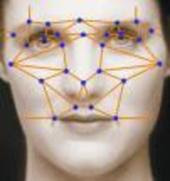Here is the interview that Discover Magazine conducted with AJ the woman who does not forget.
Perfect MemorySome people really do remember everything.by Susan Kruglinski
AN EXCLUSIVE INTERVIEW WITH A WOMAN WHO CAN'T FORGET
In a recent issue of Discover, we wrote about people who use mnemonic skills to demonstrate incredible feats of memory (
How to Win the World Memory Championship, April, 2006) Post press update: Our writer, Joshua Foer, actually won the event. Neuroscientists at the University of Irvine now claim to be studying a remarkable woman who is the first ever reported to have an extraordinary capacity for memory without using any mnemonic tricks – long ago memories simply pop into her head. Critics of this research wonder if she is not simply using ordinary memory skills in an unconscious way. In our June issue of Discover, we will have an article about this woman, who remains anonymous but is called AJ, and the controversial research. In the meantime, associate editor Susan Kruglinski has conducted an E-mail interview with AJ, asking her what it is like to remember every day as if it were yesterday.
When and how did you realize you had superior memory skills?
It was in 1978 when I was 12 years old. I was studying for my first set of finals at the end of the 7th grade and I was sitting and listening to my mother drone on and on about science and such, and I started to think about the year before when I was in the sixth grade, and how easy life was back then. It was May of 1978, so I started to think about that exact day back in May 1977, and I just started thinking about each day from that month the year before. It actually startled me at first to think that I could remember so exactly.
What are you good at remembering?I can remember everything that has happened to me. What day it was on, what was happening in the world, who was in my life at the time, and usually what the weather was like. I am very affected by the weather, so it is always something I remember. If you were to tell me the day you were married or the day your child was born (in the last 30 years) I could tell you what day it was, what I was doing, etc.
You had a couple of traumatic events in your childhood -- a move to a different state when you were eight, and a car accident when you were sixteen that required facial reconstructive surgery. Do you believe these events contributed to a desire to hold on to the past?The move from the east coast to the west coast was a HUGE trauma for me. As I look back at my behavior the first few months in my new world I realize I was trying so hard to hold on to everything from before. It is after the move that I started to remember exact days and dates. The accident I had when I was sixteen had no effect on me whatsoever.
You kept a diary from when you were a child until you were 34. What inspired you to do this?I started my diary the week I turned 11. I was away on a family vacation and I was having such a good time I wanted to write it all down so I could remember it. At this point, late 1976, I did not realize that I could remember everything. I started to write and I did not stop until 1999/2000.
In your daily life, do you think a lot about dates and events?I do. In my job I see a lot of birth dates, so whenever I do, such as 4/11/1995, I will automatically "see" the day in my head, as if someone put a video in a VCR. The day just plays in my head. I know that the day was a Tuesday and what I was doing. This happens a million times a day, even while I am functioning in the present.
Do you think that your need to remember dates and events is obsessive?
I don't know if it obsessive. I do know it is uncontrollable. I have tried to stop writing in my journal, but it never works. I went back and wrote five years (2000-2004) after not writing for that long. I did that because after not writing, it started to gnaw at me, so I had to go back and get everything down. And I did.
How has this skill been helpful to you in your life?
I have always been the "historian," who people come to for fact-checking. When they say there are three sides to a story -- yours, mine and the truth -- I am always the truth, because I see it as it happened.
How has this skill been a problem in your life?
I NEVER FORGET ANYTHING!!!!!!!!!!!!!!
Do your thoughts of dates and events crowd out other thoughts?
No matter what I am thinking about I am always in the present. Someone would never know that while I am standing there talking to them in the present, in my mind I am in my backyard in 1973.
Is it somehow comforting to have these event memories?
I never forget anything, good or bad, so it is hard to "move on." But the flip side is that I am comforted by my memory.
What does your husband think of your skills?
My husband and others in my life have always found this to be a gift. I look at it like that too, but I also know how deeply I feel about things because of how deeply I remember things.
What has it been like to be the subject of scientific investigation?
I have loved this process. After reading the paper on me by Dr. Parker, Dr. Cahill and Dr. McGaugh, I cried because finally somebody understood what I have been screaming about for the last umpteen years
This interview was taken from:
http://discovermagazine.com/2006/apr/perfect-mem




















